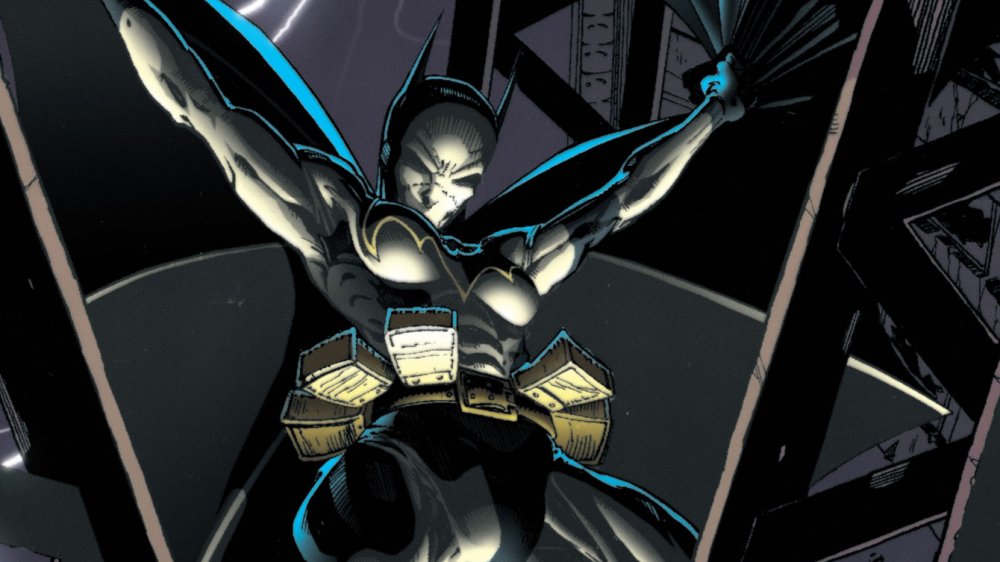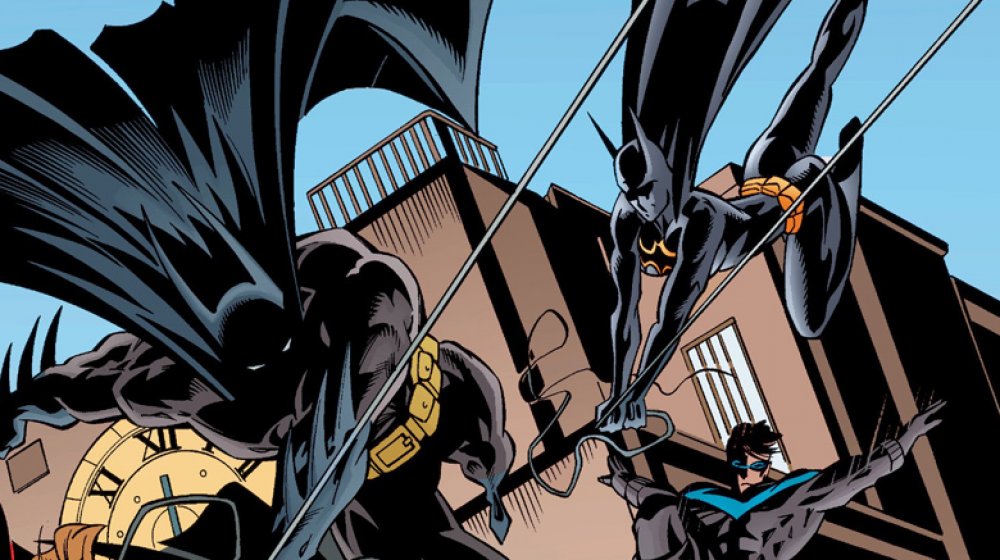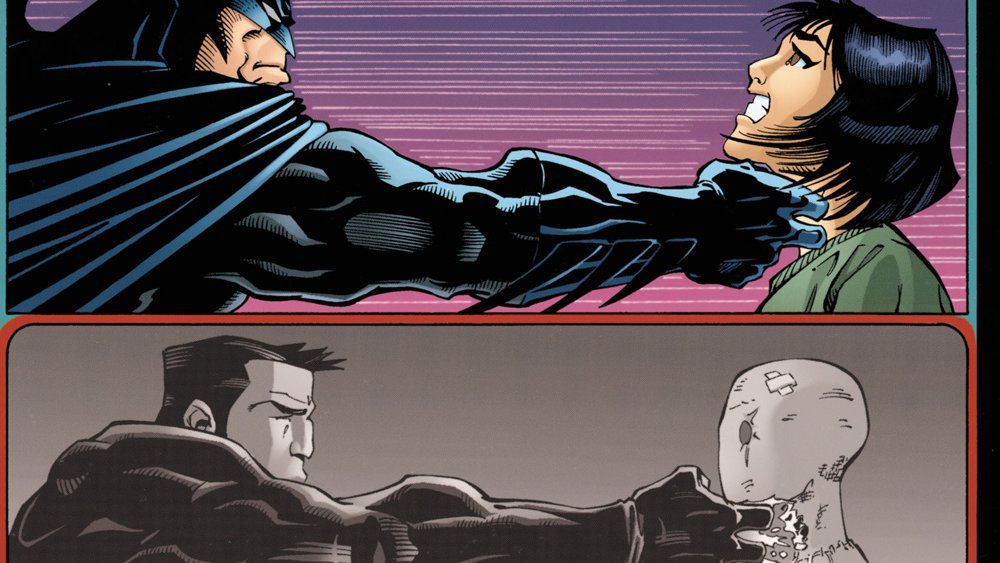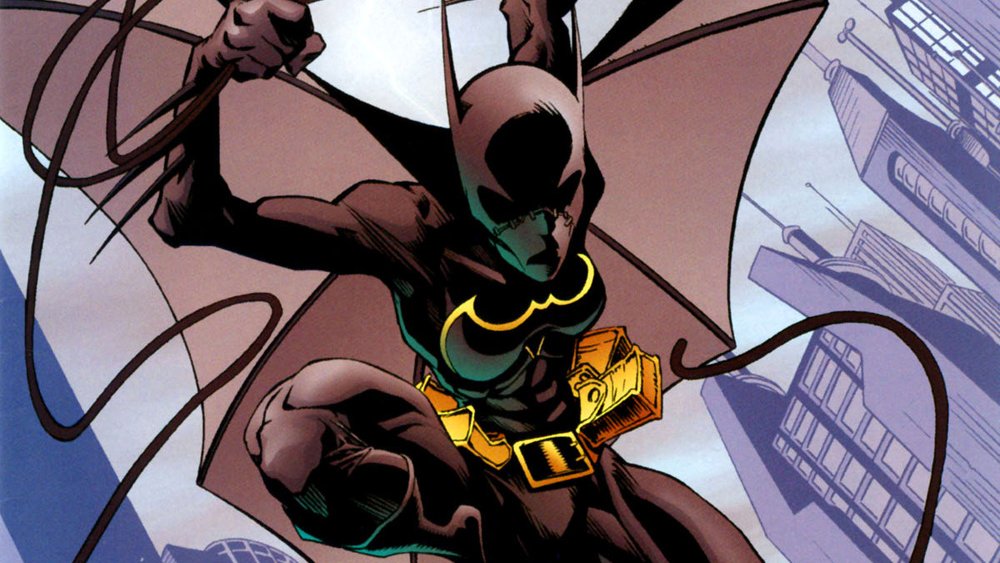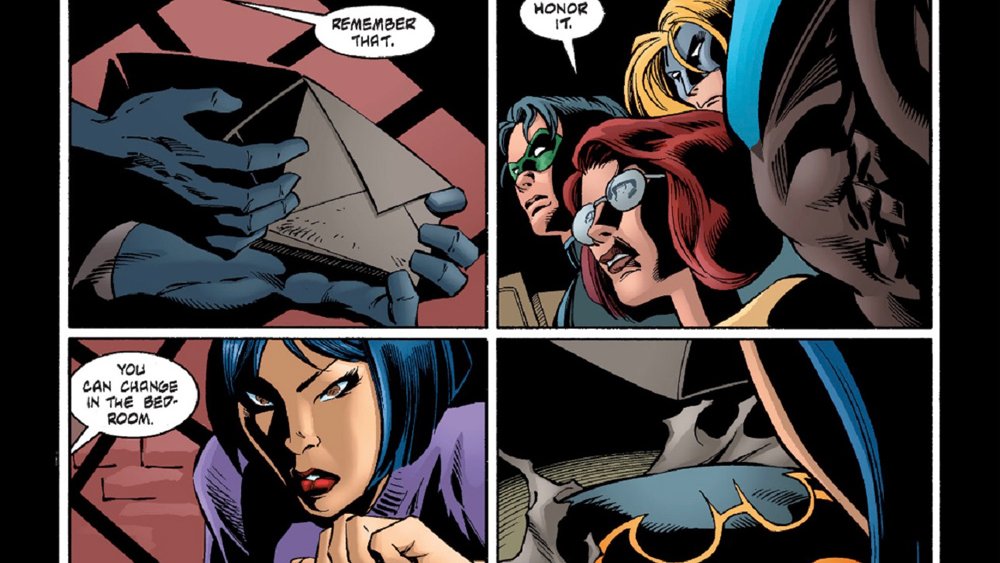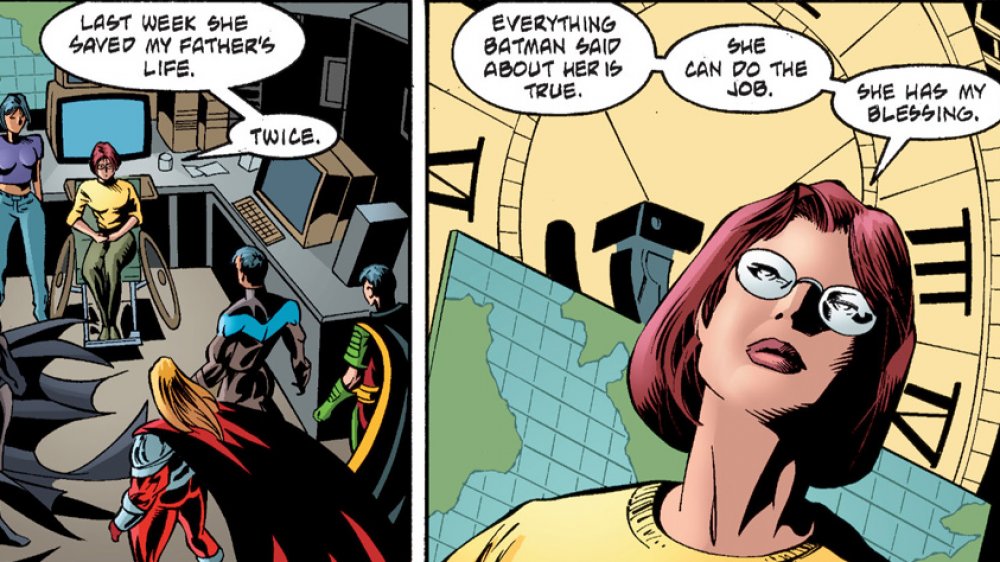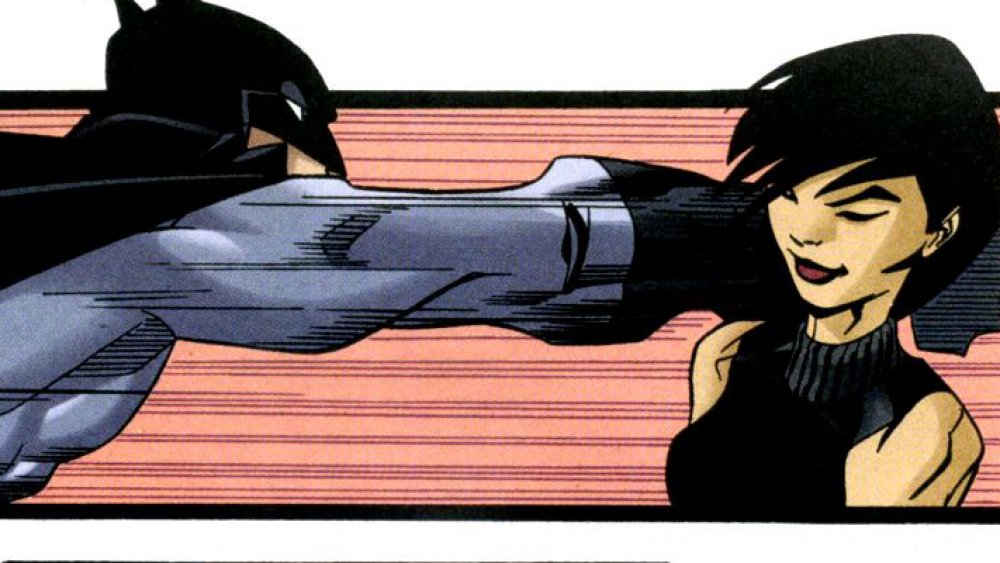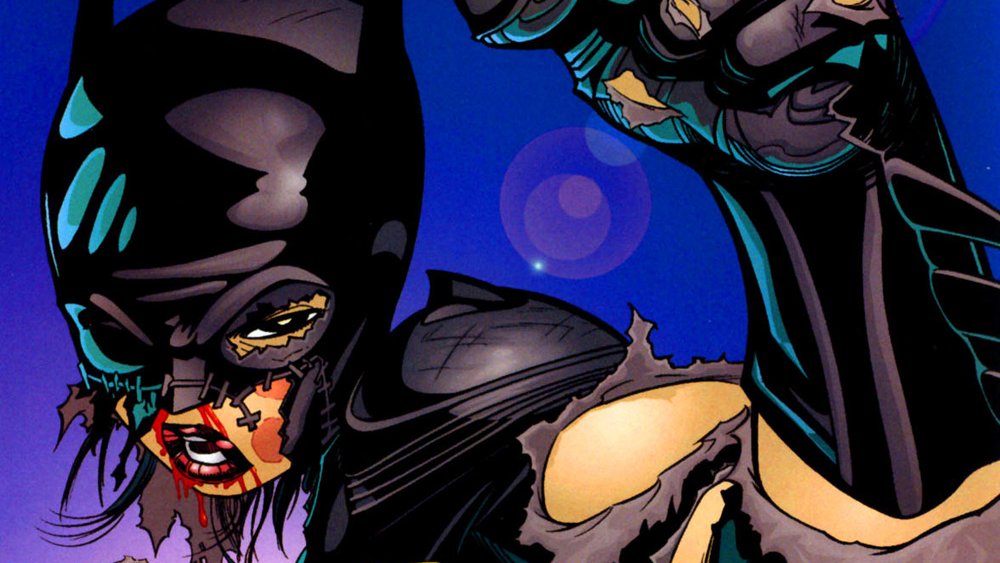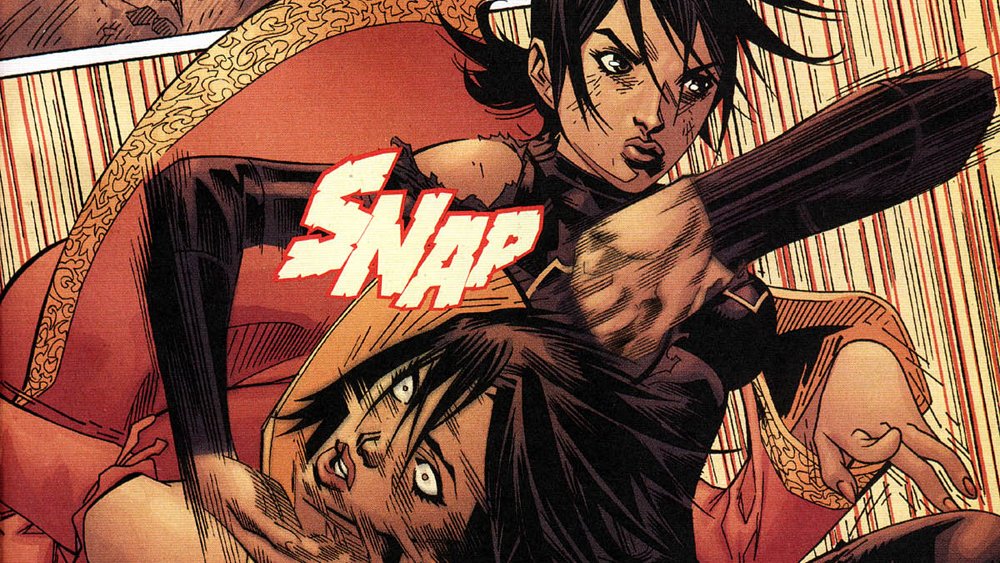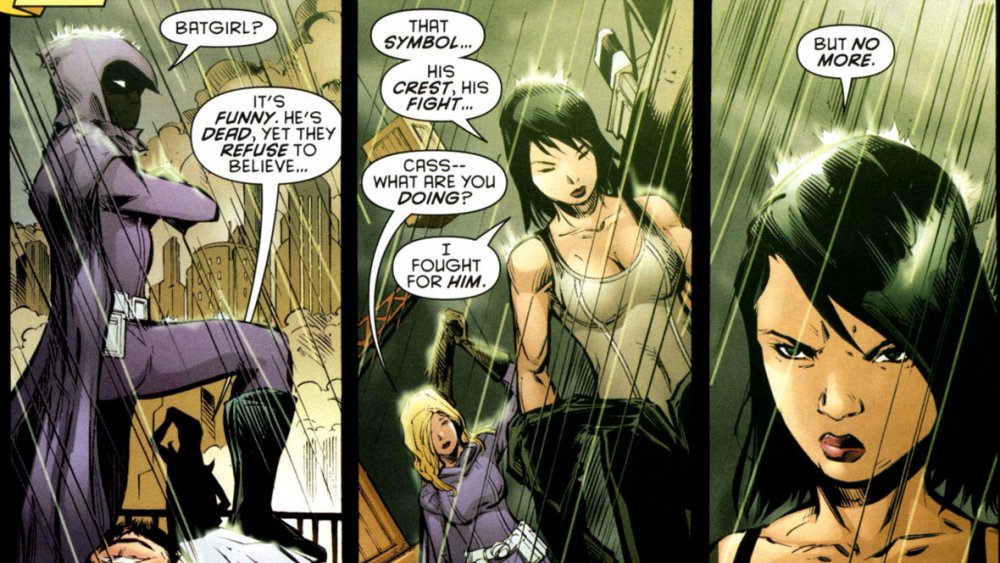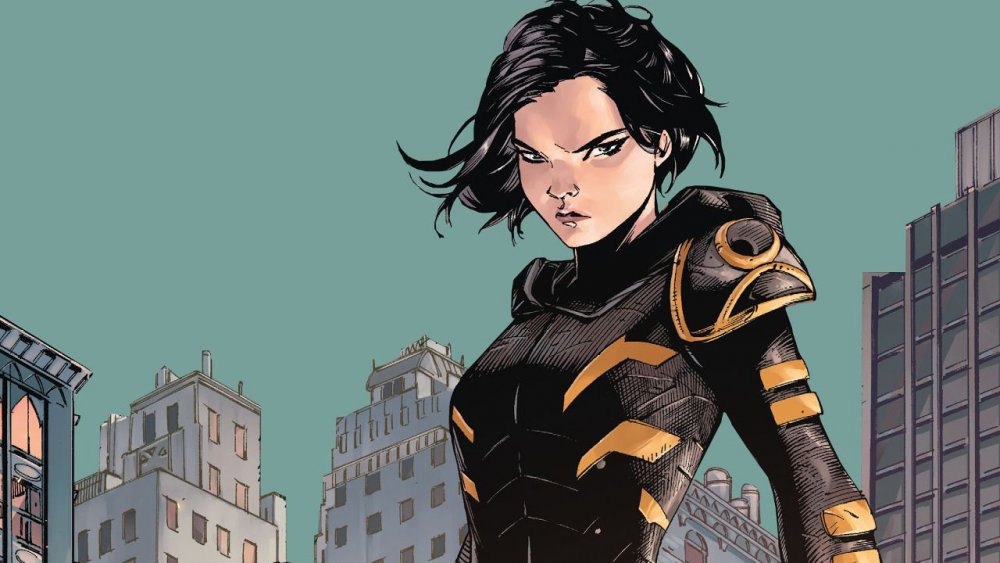The Untold Truth Of Cassandra Cain
Since her debut in 1999, Cassandra Cain has been one of DC's most interesting characters — and also one of the most resilient, both in her universe and in ours. In addition to all of her in-continuity tribulations, she survived stepping into a superheroic role that some fans considered sacrosanct, bounced back from a brief tenure where she was recast as a villain, made it through the end of her universe and into the next, and even managed to persist through years where she didn't even have a definitive codename.
Now, with her appearance in the Birds of Prey movie, Cassandra's star is shining brighter than it ever has, but the road she took to get there remains one of the most fascinating examples of how many changes a character can endure in a relatively short time. From her origins in an abusive experiment designed to create the perfect assassin to the struggle with identity that has defined her past decade, here's the truth behind Cassandra Cain.
No Girl's Land
Cassandra Cain made her first appearance in 1999's Batman #567, right in the middle of the year-long No Man's Land crossover. The basic idea was that Gotham City had been devastated by a massive earthquake, and rather than rebuilding a city with a suspiciously high number of mass-murdering clowns and costumed criminals, the government just decided to wash their hands of it. The city was forcibly evacuated, and the people left behind — the ones who couldn't afford to leave or just thought they would have a good time in an abandoned city — had to contend with the supervillains who had seized the opportunity to carve up the city for themselves.
It was essentially a way to do post-apocalyptic Batman story without having to, you know, do the actual apocalypse in the DC Universe, and it also marked the end of an era for Batman. The back half of the '90s had been defined by huge crossovers with massive body counts, from Knightfall (Bane breaking Batman's back) to Cataclysm (the aforementioned earthquake). With a solid year of one sprawling story with over 50 issues that were published weekly in all the ongoing Batman titles, NML was about as big as you could go. And when it ended, there was a soft relaunch of all the Batman titles with a new look, new creative teams, and a new direction that would be appropriately referred to as the "New Gotham" era. Before it was over, No Man's Land was laying the foundation for that new era, introducing characters who would have a place in the Batman mythos going forward.
At the start of the story, with Batman seemingly abandoning the city, a new Batgirl was introduced who adopted Batman's iconography to give the people of Gotham hope, with the readers being left to speculate on who it was under the cowl. It turned out to be the Huntress, who lost the identity after operating counter to Batman's orders. That left the role of a new Batgirl open, with a costume already designed and waiting for her. Not coincidentally, a brand new character had just been introduced who would seem to fit the part.
Cain and able
Cassandra Cain has one of the most intriguing origin stories in comics. The simple version is that she was raised from birth by one of the world's greatest assassins, David Cain, to follow in his footsteps as the perfect hired killer. That, of course, is an idea that's been done countless times before, but this time there was a twist.
From the moment she was born, her father essentially sought to rewire Cassandra's brain by raising her in a very specific way. He never spoke to her, never taught her to read, and from an extremely early age, he'd train her in martial arts, often in a brutal, abusive way. The goal was to tie the language centers of her brain to her movements, essentially teaching her to "read" the human body and "speak" entirely through movement. It worked, and by the time she was ten, Cassandra was able to fight as easily as anyone else could talk, with a vocabulary of lethal strikes. She could read body language with the same fluency that you're using to read these words. Through nonverbal cues and subtle shifts in the way a person moved, she could tell what someone was going to do next as easily you can guess how this sentence is going to end. When she was eight, Cain tested out his experiment by bringing Cassandra on a job, getting her close to his target and fulfilling his contract when she tore out his throat, Road House style.
The "only problem," at least from David Cain's point of view, was that Cassandra was still a child, and despite her upbringing, she still had feelings, and the sense of what she was doing. As brutal as he was, Cain had characterized all of her martial arts training as a fun game. When she killed her target, she was able to "read" his death and understand the truth of what she'd done when she saw him experience "terror, then nothing." Horrified, she fled from her father, and a few years later, she wound up in a place where she thought no one would find her: Gotham City.
The Batgirl Rises
With her incredible fighting skills and the lingering guilt over the murder she'd been forced to commit, Cassandra was the perfect fit for Batman's ever-expanding family of sidekicks... especially since she and the Dark Knight already had a connection, even if neither of them knew it until they met.
If you're familiar with Batman's origin story, then you probably already know that the years between the gunshots in Crime Alley and the bat crashing through the window at Wayne Manor were taken up with Bruce Wayne traveling the world, learning to be the best at... well, everything. Unsurprisingly, a whole lot of that time was devoted to hand-to-hand combat, with Bruce using his massive family fortune to seek out the world's best fighters and learn their secrets.
One of those trainers was David Cain. Even back then, Cain was already working on the "experiment" that he'd use on Cassandra, attempting to teach Bruce the language of combat. The one sticking point between them was Bruce's refusal to use lethal blows in combat, and since he realized he wasn't actually training his student to be an assassin, Cain ditched Bruce and decided to try his ideas out on someone he could train from birth.
Years later, Cain would wind up in Gotham during the No Man's Land year on a contract to kill Jim Gordon. Cassandra stopped him, and in the process she met Batman, who recognized elements of Cain's fighting style and realized that the assassin had put his plans into practice. When Cassandra took it upon herself to don a mask and intervene, saving Gordon's life, Bruce realized that she had both the skills and the moral center to join him. He gave her the costume recently vacated by the Huntress, and Cassandra Cain officially became the brand-new Batgirl.
Taking the cape
The first Batgirl — assuming that you don't count Bette Kane, whose all-important hyphen made her a Bat-Girl instead — was Barbara Gordon. Unfortunately, her career came to an end thanks to the events of Alan Moore and Brian Bolland's The Killing Joke, in which the Joker shot her through the spine, paralyzing her legs. Barbara would move on to a prolific heroic career as Oracle, using her considerable hacking skills to gather information and coordinate missions for other heroes, including the Justice League and her own team, the Birds of Prey, but she was always strongly identified with her original role. In fact, one of the most dramatic moments of No Man's Land came when Barbara discovered that Batman had sanctioned another Batgirl, something she still thought of as a huge part of her identity, without even telling her who it was.
Bruce's second pick for a new Batgirl, however, was different. Before Cassandra took up the cape and cowl for herself, Babs knew her as what she assumed was another refugee trapped in Gotham, and had been teaching her how to read and speak over the course of the NML year. When Cassandra saved her father's life — and when Batman shared her tragic origin — Babs was grateful enough to give her an unequivocal blessing as the new Batgirl.
Cass v Babs
In addition to its in-continuity benefits of smoothing her transition into the Batman Family, there were plenty of real-world perks to this bit of storytelling, too. For one thing, it gave Cass a ready-made supporting character for the launch of her own book who could handle the lion's share of the dialogue, and perhaps more importantly, giving her Barbara's approval made it a lot easier for Barbara's fans to approve of her, too.
The decision to paralyze Barbara in The Killing Joke and remove her from the role of Batgirl was among the most controversial moves in DC history, and perhaps surprisingly, has only grown more controversial in the years since. While Babs had been cemented more or less permanently as Oracle — the key being "more or less," which we'll come back to in a moment — introducing a replacement was still likely to raise the ire of some die-hard fans.
That's probably why they introduced the Huntress version of Batgirl months beforehand, to gauge the reaction to the idea of someone else taking the role. At the time, the mystery of wondering who the first "New Batgirl" actually was vastly outweighed the controversy of what could've been seen as taking away a part of Barbara's identity. As it turned out, fans were pretty happy with Barbara in the role of Oracle, especially since Birds of Prey, the book she was headlining with Black Canary, made the transition from the occasional miniseries to an ongoing title six months earlier. The fact that the same concerns fans had were addressed in the books themselves didn't hurt, either, nor did the major differences between Cassandra and Barbara's backstories.
The Batgirl years
In April of 2000, a few months after the end of the No Man's Land arc, Batgirl #1 hit the stands with Cassandra Cain in the starring role. Even though the first Batgirl had been around since the '60s, this marked the first time that there had ever been an ongoing Batgirl title.
It would eventually run for 73 issues, with Barbara Gordon in a supporting role as Cassandra's mentor and her primary point of contact with the rest of the Batman family. In addition to the usual vigilante activity, the series was frequently devoted to exploring the idea of her family, both biological and chosen. Barbara served as a surrogate mother, with Batman himself making only occasional appearances as what you'd expect: a stern father figure who demanded the best out of her. Despite his harshness, he was also the only person who could fight Cassandra to a standstill, meaning that he was the only one with whom she could communicate with in what was essentially her first language.
On the other side of things, David Cain was depicted as the kind of abusive father who firmly believed that he had done something good, with a disturbing pride in Cassandra and the way that he'd attempted to turn her into little more than a breathing weapon. The series also revealed that while her father was one of the world's greatest assassins, her mother was the woman commonly regarded as the best killer in the DC Universe: Lady Shiva. Eventually, that would become the most important relationship in the book... both its good parts and its absolute worst.
Fighting with her family
In one of her early outings as a vigilante, Cassandra had the misfortune of having her brain rewired by a telepath who, rather than being a villain, actually had the best of intentions. He couldn't read her mind since her language centers were devoted to physical movement, so he essentially just moved things around until it started making sense. The lasting effect was that Cassandra lost the abilities that made her such a capable fighter, and while she was still pretty good, she wasn't, you know, Batman good. The Dark Knight made an attempt to re-train her, which literally involved giving her a DVD of himself lecturing about various martial arts, something that embodies Batman's signature spot at the intersection between totally baller and the "while you were dating, I studied the blade" meme.
Shockingly, Batman's Tae-Bo DVDs (only three installments of $19.99!) did not work. Desperate to get back the skills she'd lost, Batgirl turned to Lady Shiva, who offered to return her skills instantly via some sort of off-panel mysticism. The price? One year later, Cassandra would fight Lady Shiva to the death — which, since Cassandra refused to use her skils to take a life, would mean she'd lose to Lady Shiva and die in the process. Faced with the choice between being "mediocre for a lifetime or perfect for a year," Cassandra agreed, and got her skills back.
When the next year rolled around in Batgirl #25, the two finally had their fight. Cassandra, still wracked with guilt from her murder, had something of a death wish, but as they fought, she realized that a part of Shiva felt the same way, and that she hoping that Cassandra would end her life in the fight. Cassandra won, but left Shiva alive before collapsing from the beating she took in the process.
Things go bad
Up to this point, Cassandra Cain had been defined almost entirely by her knowledge of what it was like to kill someone, and her refusal to do so ever again. It was what Batman saw in her, and the entire reason that he gave her his symbol and helped her turn her guilt into something with meaning that would help people. It was, in short, her whole deal. So why not chuck it all out the window and turn her into a murderous supervillain instead?
That's exactly what happened at the end of her series. Batgirl #73, the final issue of the run, involved another fight with Shiva, and this time, it was very different. Cassandra snapped Lady Shiva's neck and then impaled her on a hook, killing her and chaining her corpse over a Lazarus pit, presumably so that future writers would have an out for bringing her back later. The next time she appeared, it was as the leader of the League of Assassins. She'd murdered the League's previous leader, Nyssa al-Ghul — killing her with a car bomb off-panel in one of the most ignominious deaths ever — and then used the League's resources to track down and murder all of the other girls that David Cain had experimented on before he got things right with Cassandra. Then she teamed up with Deathstroke the Terminator and tried to murder the Teen Titans.
To say that this was out of character is putting it mildly. It was an absolute mess and nearly destroyed her career on the page. Eventually, it was all "fixed" in the first issue of a Batgirl miniseries in 2008, through a dense wall of text that tried to explain it all away. It was about 31 paragraphs of dialogue crammed into two pages, but it basically amounted to "bad guys used mind control drugs while Batman was out of town, let's never talk about this again."
Batgirl no more
After leaving behind the role of Batgirl to become a mass murderer, and then leaving that behind with a hasty retcon that swept it all under the rug, Cassandra had an understandably hard time fitting back into the Batman Family. It was so difficult, in fact, that one night, she literally just took her costume off, handed it to someone else, and peaced out of the Batgirl identity forever.
The "someone else" in this case was Stephanie Brown, a character who'd had an equally complicated time over the previous few years. As the daughter of a supercriminal called the Cluemaster — imagine the Riddler but somehow even less successful at villainy — Stephanie had debuted as a vigilante called the Spoiler, and struck up a relationship with Robin. When Tim Drake quit being Robin, Batman recruited her to be the new Robin, only to fire her after she almost killed Mr. Zsasz during a fight, saving Batman's life in the process. To prove her worth, she enacted a complex contingency plan that Batman had doodled up in his spare time, inadvertently sparking a massively violent city-wide gang war in which she was herself tortured to death with a power drill by Black Mask.
Stephanie eventually got better; Batman eventually got worse. While Bruce Wayne was presumed dead — he was actually traveling through the time-stream pursued by a demon, a story that's complicated even by the standards of everything else you just read — Cassandra found herself lacking direction. She gave Stephanie the costume, Stephanie became Batgirl, and then two years later the entire universe was rebooted.
Black Bat and Orphan
Shortly before the DC Universe was relaunched with the New 52, Cassandra Cain briefly appeared under the new codename "Black Bat" in a similar costume to the one she'd worn as Batgirl. She was, however, little more than a background character in that role, and when the reboot hit, it was initially unclear whether she'd been brought into the new universe. The only thing readers knew for sure was that she wasn't Batgirl — one of the New 52's biggest changes was putting Barbara Gordon back in that role.
Eventually, however, Cassandra proved to be too resilient to be kept out of action for long. In a 2015-16 weekly series called Batman & Robin Eternal, she was brought back, with a few notable changes. The basic beginnings of her origin story remained the same, with David Cain training her to "speak" in the language of violence, but in this version, she didn't get away like her previous incarnation. Instead, she was used by a villain named Mother, who wanted to create an army of child soldiers by putting kids through horrific trauma — or at least using a variant of the Scarecrow's fear toxin to give them the experience of the trauma without all the labor that goes into it. Taking the codename "Orphan" — originally David Cain's codename in Mother's organization — Cassandra defected, warning Batman and Robin and joining them in their fight to stop Mother.
With Mother defeated, Orphan joined up with other young Gotham CIty vigilantes, being trained by Batman and Batwoman. Having proved her skills and her commitment, she was recruited to the current incarnation of the Outsiders — essentially Batman's covert ops team — in 2019. Here's hoping she can avoid all those mind control drugs this time.
